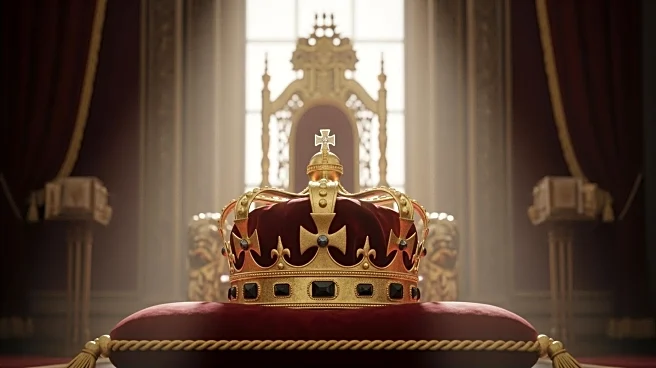What's Happening?
Prince Andrew, the younger brother of King Charles III, has decided to relinquish his Duke of York title following years of controversy surrounding his associations and personal conduct. This decision
comes after persistent scrutiny over his connections with the late Jeffrey Epstein, a convicted sex offender. Despite stepping back from his royal duties in 2020, Andrew's past actions have continued to attract negative attention, including a high-profile settlement with Virginia Giuffre, who accused him of sexual misconduct. The settlement, reportedly costing Andrew up to $10 million, did not include an admission of guilt. Additionally, Andrew's ties to a suspected Chinese spy and other questionable associations have further tarnished his reputation, leading to his current decision to step away from his remaining royal titles.
Why It's Important?
The relinquishment of the Duke of York title by Prince Andrew marks a significant moment in the British monarchy, highlighting the ongoing impact of personal scandals on public institutions. This development underscores the royal family's efforts to distance itself from controversies that could undermine its public image. The decision also reflects broader societal expectations for accountability and transparency, particularly concerning individuals in positions of influence. For the U.S., this situation draws attention to the international implications of high-profile scandals, especially those involving American citizens like Virginia Giuffre. The case has also sparked discussions about the responsibilities of public figures and the consequences of their associations.
What's Next?
Following the relinquishment of his title, Prince Andrew is expected to maintain a low profile, continuing to reside at Royal Lodge. The royal family may further evaluate its public engagements and associations to prevent similar controversies. Meanwhile, public and media scrutiny of Andrew's past actions and connections is likely to persist, potentially influencing future decisions regarding his involvement in any public or charitable activities. The monarchy's handling of this situation could set a precedent for how it addresses similar issues in the future, balancing tradition with modern expectations of accountability.
Beyond the Headlines
The decision by Prince Andrew to step back from his title raises questions about the ethical responsibilities of public figures and the long-term impact of their actions on institutional integrity. It also highlights the cultural shift towards greater accountability and the diminishing tolerance for misconduct, regardless of status. This situation may prompt other institutions to reassess their own standards and practices, ensuring that they align with contemporary values and public expectations.










